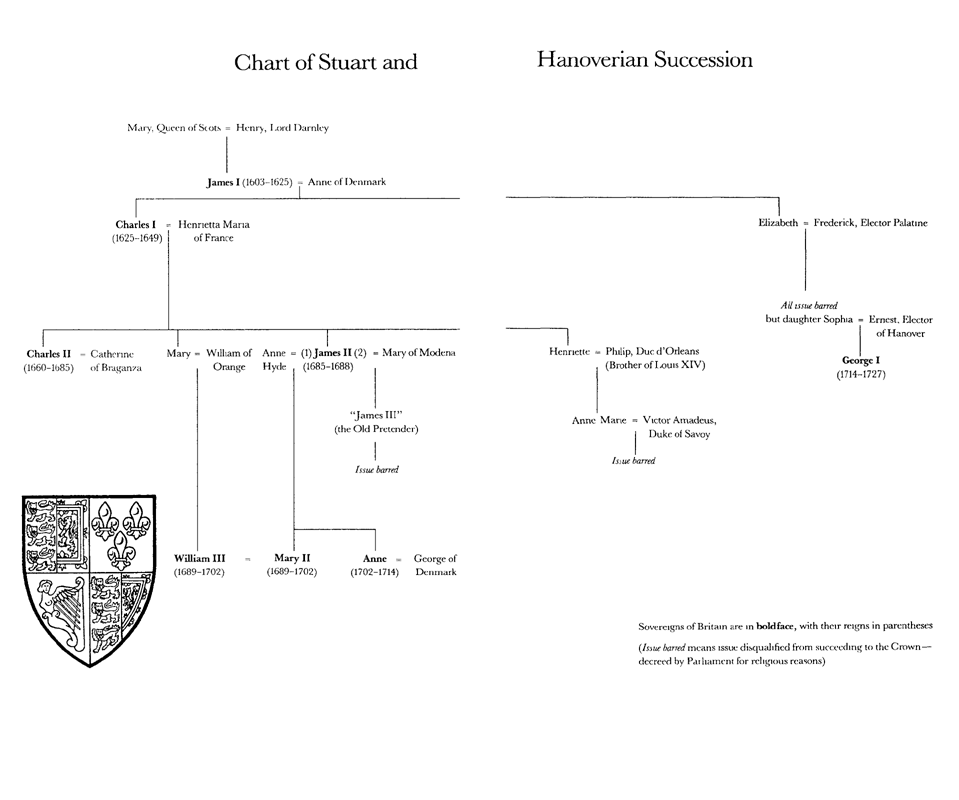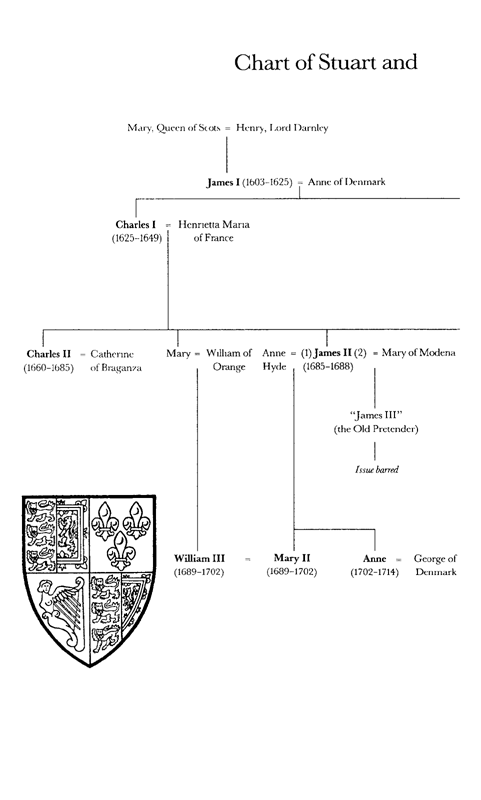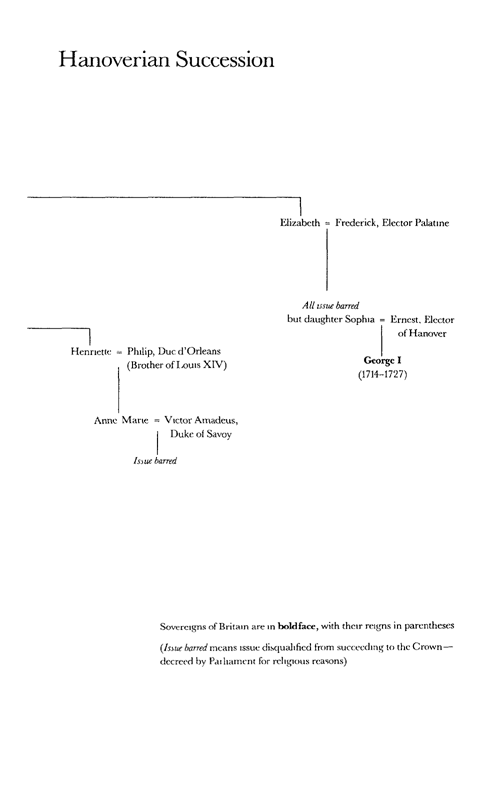Exit Lady Masham (19 page)

"Is that the thanks I get for saving your head from the block on Tower Hill?"
"You saved it only to pitch rotten eggs at it. I'll be in a pillory for the rest of my days. We should have a fine life in the country together, my girl! Every time I spit at you, you'll run to His German Majesty!"
"A woman has to have some protection."
If our subsequent life has been as dreary as I foresaw, it has not been nearly as tense. Rather than spitting at me, Masham has paid me only the scantest attention. We did not even have to fight over the marriages of our daughters, for we had the tragic misfortune to lose them both young. And as my surviving son, who favors his father in looks and temper, has always been much closer to Masham than to me, there has been no occasion for disputes over his education or career. Oh, yes, we have been peaceful enough at Oates Manor. Our exile has never been rescinded.
Lord Oxford did more for me than he succeeded in doing for himself. He was never able to convince King George that he had advocated obedience to the Act of Settlement, and the poor man spent two years in the Tower. He was allowed, however, to have his books there with him, and on the single occasion that I was permitted to visit him (over the vehement objections of my husband, who feared that we would be compromised), I found my old friend as serene and benign as when I had first known him. I think he was actually glad to be released from the life of politics to the life of contemplation, and certainly it became him more.
For a long time I was troubled by the tendency of journalists and historians to classify the last years of Queen Anne's reign as a period of decadence in contrast to the glorious era of the Marlborough dominance. The red nose of Abigail Hill is always set against the radiant beauty of Duchess Sarah. But with time I have become resigned to this. I have tried to recognize that the people have not been given much in the way of pleasure, and that it may be a necessary solace to those buffeted by poverty and plague, by wars and threatened invasions, groaning under the sway of windy politicians and bigots, to have the example of John Churchill's great courage and brilliant victories to dazzle their clouded eyes. He and his beautiful, haughty Duchess were like two stars in a murky sky. They supplied us with an ideal of gallantry and love that helped cloak the carnage and filth of war.
When I went up to London for my audience with Queen Caroline, I attended the public exhibition of the great battle tapestries that old Sarah had commissioned for Blenheim Palace. They were of surpassing beauty. On rich green and yellow fields and hills under cerulean skies officers peered through glasses, troops bravely marched, cannons puffed little balls of white. The figure of the great Duke on a charger, in a plumed hat, dominated one scene. Everything depicted seemed bathed in a rich, golden haze. Everything was ordered and still in the gentle light. It struck me that this was indeed how Marlborough had seen the war. And it was his genius that had made his public view it in the same light.
Unhappily for us all, the military game has become too savage to be left to even the bravest warriors. When the Sun King made his fateful decision to accept the testament of Carlos II and place his grandson on the throne of Spain, he started a conflagration that spread over Flanders, the German states, the Italian and Iberian peninsulas, the Channel, the Mediterranean, the Atlantic and the New World. He was unable to stop what he had started. It was all very well for him to prate of
gloire
and for the poets and painters of France to laud the deeds of his heroes, but what was to happen when they found a bulldog like Marlborough, who did not know how or when to let go? Glory disdained compromise; glory had to fight to the death.
This was what Robert Harley dimly, and what Jonathan Swift clearly, perceived. It took all of the latter's genius to comprehend that Europe could be saved only by something that had never happened before in recorded history: the withdrawal by the victor from the battle. He not only envisioned this; he saw the one way to accomplish it: by use of the royal prerogativeâeven if the prerogative should be exhausted forever by the act. Anne had the power and the inclination to use itâif her inertia could be dispelled. And for this he had a simple tool.
If I was able to serve his great cause, I should not now repine that my silly reputation has been tarnished, or even regret what will surely be the fate of these memoirs if you, my dear husband, should survive me to read them. As Swift taught me: few people live even once in the course of their lifetimes. Thanks to him, I may haveâonce.


